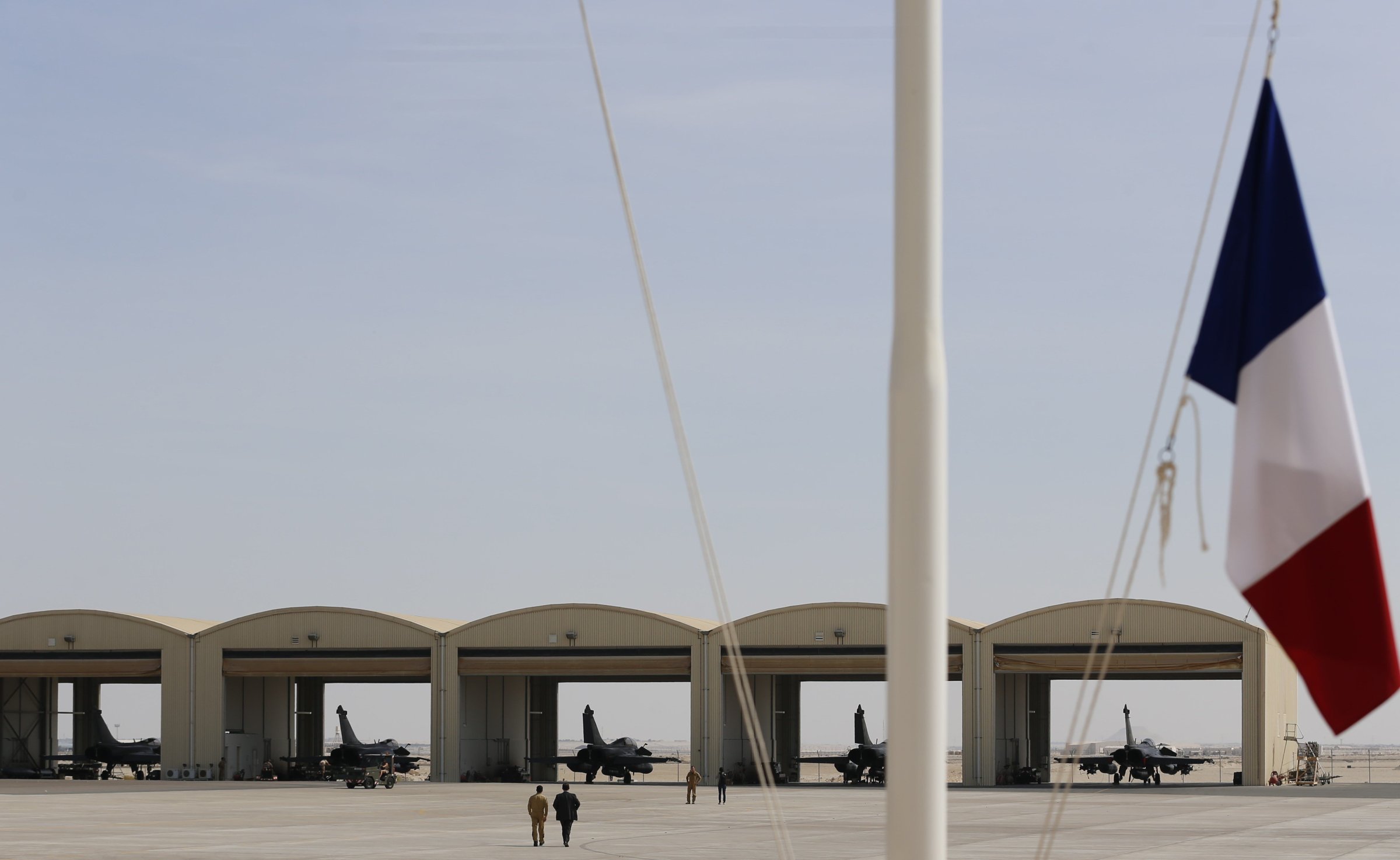
The ISIS attacks in Paris, Beirut and the Sinai Peninsula, which have killed hundreds of innocent people in the past few weeks and wounded many hundreds more, have generated concerns about the effectiveness of the U.S.-led operation against the terrorist group. It should do the opposite: these attacks demonstrate the need for us to continue the current strategy.
It’s likely that a goal of the attacks was to discourage those involved in the war against ISIS from continuing to work with the U.S. in waging war against it in Iraq and Syria. The French joined the U.S.-led bombing campaign in September and are the second largest contributor to the U.S.-led air campaign. And while the Russians and Hezbollah, the Lebanese terrorist group, have been more concerned with attacking the moderate opposition to Bashar al-Assad in Syria, they, too, have also taken action against the terrorist group. The Paris attacks are likely to provoke both the U.S. and its European, Russian, and Middle East partners to intensify the current form of military action against ISIS and work to settle the Syrian conflict so that all parties can focus on ISIS.
The U.S.-led operation against ISIS has been effective in the past couple of weeks. The U.S. has likely killed Jihadi John, the British militant who executed Western hostages, and Wisam al Zubaidi, the ISIS leader in Libya. In addition, Kurdish and Yazidi forces trained, equipped and advised by the U.S. have not only taken back Sinjar but cut off Route 47 from Raqqa, the ISIS de facto capital in Syria, to Mosul which ISIS uses to resupply that city. They’ve also destroyed the Omar oil field, one of the two largest oil production sights in Syria.
We should not think this war can be won militarily or that it will be over quickly. An ideology cannot be defeated with force. But by slowing ISIS momentum in the Levant and containing it, the ISIS ideology that attracts so many people in the Middle East and around the world can be undermined. Containment, and Muslim religious and political leaders continuing to speak out against it, can confine it to the dustbin of history.
The U.S. must be careful not to overreact like it did after 9/11. The U.S. had no choice but to go after Al Qaeda and its Taliban hosts in Afghanistan, but invading and occupying Iraq, a country that had nothing to do with the 9/11 attacks, not only diverted attention and resources from Afghanistan, but also destabilized the region, which led to the creation of ISIS, empowered Iran and has kept the U.S. bogged down in Afghanistan.
Overreaction now would involve sending large numbers of American ground troops to Iraq and Syria and establishing a no-fly zone in Syria. Putting large numbers of U.S. troops on the ground, rather than relying on indigenous forces like Kurdish Peshmerga and the Iraqi army, would only enhance the ISIS claim about this being a struggle between the West and Islam for the future of the region. And establishing a no-fly zone would do nothing to help the struggle against ISIS since the group does not have an Air Force.
The U.S. should also not allow these attacks to be used as an excuse to prevent us from taking in refugees from the war zones in the Middle East. That is not who we are and will not help us to win the intellectual, ideological and moral struggle against ISIS.
We cannot guarantee that there will be no more ISIS-coordinated or inspired attacks against the U.S. and its partners. In a free and open society you cannot have perfect security or eliminate every security threat. But what we can do is to continue to work patiently with our partners and share intelligence with them to combat the primary threat facing us and the world.
Lawrence Korb is a senior fellow at American Progress, former assistant secretary of defense and former Naval Flight Officer.
More Must-Reads from TIME
- Why Trump’s Message Worked on Latino Men
- What Trump’s Win Could Mean for Housing
- The 100 Must-Read Books of 2024
- Sleep Doctors Share the 1 Tip That’s Changed Their Lives
- Column: Let’s Bring Back Romance
- What It’s Like to Have Long COVID As a Kid
- FX’s Say Nothing Is the Must-Watch Political Thriller of 2024
- Merle Bombardieri Is Helping People Make the Baby Decision
Contact us at letters@time.com